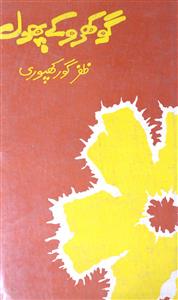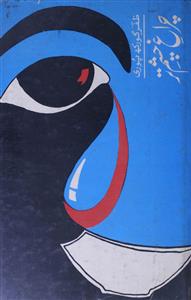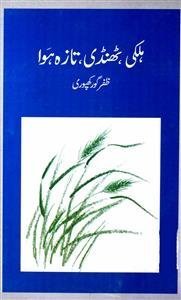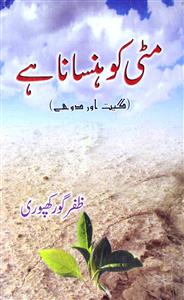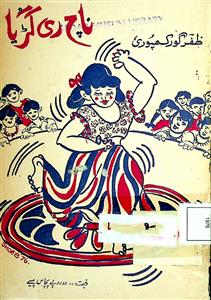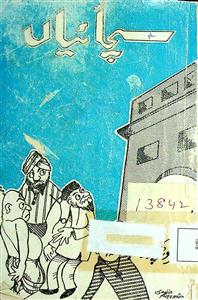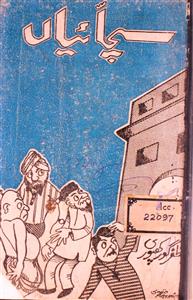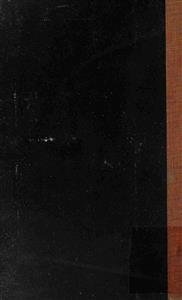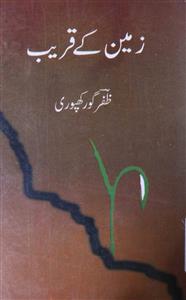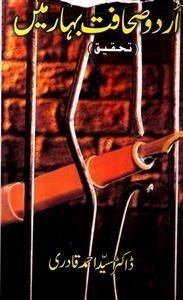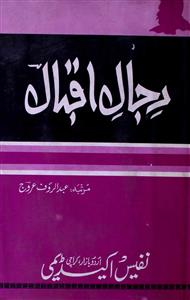 For any query/comment related to this ebook, please contact us at haidar.ali@rekhta.org
For any query/comment related to this ebook, please contact us at haidar.ali@rekhta.org
About The Book
زیر نظر کتا ب "گوکھرو کے پھول" ظفر گورکھپوری کا تیسرا شعری مجموعہ ہے۔ اس شعری مجموعہ میں ان کی دس سال کے عرصے یعنی 1975 سے 1985 کے درمیان لکھی گئی غزلیں شامل ہیں۔ اس مجموعہ کے حوالے سے پروفیسر فضیل جعفری لکھتے ہیں "گوکھرو کے پھول میں شامل غزلیں اپنی مانوس بحروں، لفظیات اور موضوعات کی بنا پر صرف ظفر گورکھپوری ہی نہیں بلکہ ہمارے پورے عہد کی غزلیں ہیں۔ ہمارا عہد شکو ک، شبہات، بے چین خیالات اور غیر مستحکم روایات کا عہد ہے۔ زیر نظر مجموعہ میں یہ تمام عناصر کچھ اس طرح رچے بسے ہیں کہ ظفر کی شاعری عصری مزاج اور عصری آہنگ کی شاعری بن جاتی ہے یہی وجہ ہے کہ ان کی غزلوں کو پڑھتے ہوئے قاری جا بجا اپنے آپ کو کو شاعر سے قریب پاتا ہے۔" کتاب کے شروع میں ظفر گورکھپوری کی شاعری کے حوالے سے مجروح سلطان پوری، ظ انصاری اور عزیز قیسی کے عمدہ مضامین بھی شامل ہیں، جن کو پڑھ کر ظفر گورکھپوری کی شاعری کی قدر کو متعین کیا جا سکتا ہے۔
About The Author
Zafaruddin Zafar Gorakhpuri was born on May 5, 1935 in Kobidoli Babu Bamboo Village (Gorakhpur District). He came to Mumbai with his father in 1944. He was associated with both progressive movement and the modernists in the age of modernism.
Initially, he was a primary school teacher at Mumbai Corporations, from where he later retired as Headmaster. These days he is living in a suburban area of Mumbai. He wrote songs in a few films but did not succeed and left the field. He kept appearing in literary magazines and that is why his name is very important in the world of poetry. Qawwals and Ghazal Singer have sung his ghazals well. So far, many of his collections have been published. Among them ‘Tesha’, "Wadi-e-Sang", are very important", many collections of children's poems have also been published.
From the pillars of traditional progressive and modern poetry, Zafar Gorakhpuri's poetry comes to the fore. It is an acquired, not a replica, but the vast ocean of Zafar Gorakhpuri's poetry in which there are fishes of all kinds depicting the many colors of life. After Qazi Adeel Abbasi, Firaq Gorakhpuri, and Professor Majnoon Gorakhpuri, Gorakhpur, a land which has always produced great literary and creative minds, is known by the name of Zafar Gorakhpuri.
The tragic Indo-Pak partition left a huge impact on him, he recited a number of poems in the progressive poetic form, which seemed to resonate, but gradually a healthy intellectual revolution prompted Zafar Gorakhpuri to discover the lost soft and delicate tone of the ghazal. Soon another healthy change took place in Zafar's ghazal poetry. At a time when Stalin had died in Russia and Stalinism was being brought to its death, collaborative artists and intellectuals were watching the situation with amazement. Urdu poetry was apparently in a state of stagnation. At the same time, a new voice of young writers was heard from Mumbai. Apparently, it was weak but soon it gained stability. Zafar Gorakhpuri is a poet of the same generation. Zafar has kept his identity and his age in mind and brings out a charming unique emotion. Zafar Gorakhpuri's intellectual inclination and his poetic art is in fact an expression of the anguish of his time and at the same time the poet has not only made the readers aware of this anguish with his art but also tried to give the spirit of light to this darkness.
Zafar has also tried to use a new language in the new ghazal and has illuminated the possibilities of poetry in the new Urdu language to be created in India. So it's more intense, more refreshing and more effective.
 For any query/comment related to this ebook, please contact us at haidar.ali@rekhta.org
For any query/comment related to this ebook, please contact us at haidar.ali@rekhta.org
Write a Review
Jashn-e-Rekhta 10th Edition | 5-6-7 December Get Tickets Here
